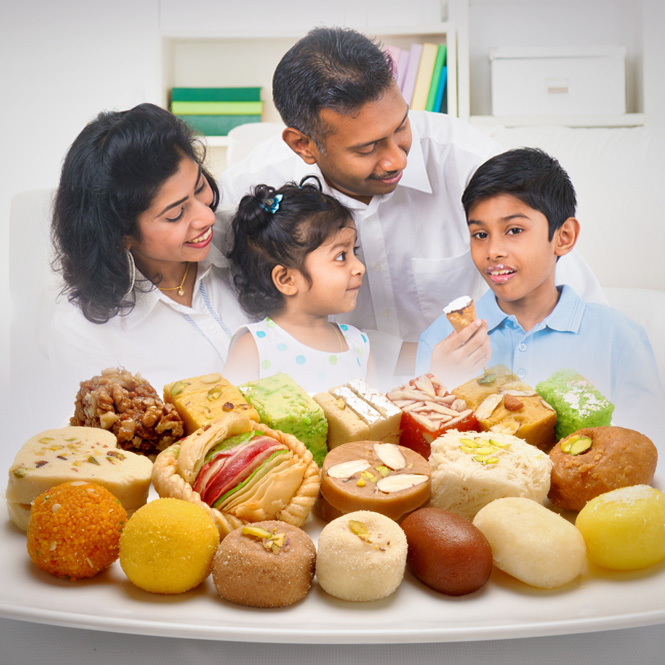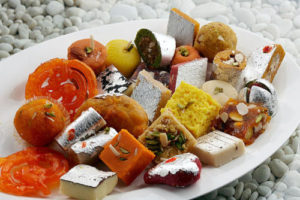Have a blast with sweets this Diwali

Dr Priyanka Mathur
Getting tempted with an array of display of sweets and chocolates this Deepawali is natural and normal. We have said ‘NO’ to crackers this season. So, no more NOs! Let’s eat all we can from the sweet tray and follow what your neighbourhood dentists advise. Eat what you must, but rinse, gargle and brush after sweets and let it be the best Diwali ever for you.
In an age of rampant social media shares and mindless online content, it may not be a surprise if you have already come across scary stories on how sweets can damage your teeth and that you need to stay away from them this Diwali. You may give it a pass and have a blast this Diwali. Remember two things: First, sweets are not harmful and are actually good as it pumps up your sugar levels and makes you happier; second, like any other things in life, moderation is important with eating sweets too. These are two simple mantras to keep your smiles intact!
One short burst of eating sweets will not cause permanent harm to your teeth as is being generally made out, doctors say. A good doctor is not the one who asks not to do something, but always prescribes how to do something.
In the spirit of Diwali, it is criminal to keep warning people to avoid sweets. They say it is important to educate people on what potential risks eating excessive sweets can cause to the oral health and how to avoid damage to the teeth than not eating sugary food at all. As long as dentists are able to create this awareness among people, it should serve the cause. What’s most worrying is the mindset of people when it comes to visiting a dentist. They must know that in case there is the slightest of trouble in your teeth, visiting a dentist is a must, Diwali or no Diwali.
One of the common problems associated with sweets is harm to teeth. When a person consumes too much sugary food products over a long period of time, the sugar particles react with the saliva present in the mouth and tend to reduce pH level. When this activity continues for long, the overall pH of the mouth becomes less than 5.5, hence making it acidic. The acids thus formed reacts with the enamel (the upper layer of teeth) and destroy it. This enamel can never be brought to its original form, once eroded. Also, lowering of mouth pH can cause weakening of gums and bad breath in the long run.
Dental cavities are a result of action of sugary food products on tooth surface. Food particles get attached to the surface of teeth, hence forming a sticky, slimy layer called plaque, which harbour many bacteria. The bacteria in the form of plaque react with the sugar particles, which, in addition to eroding enamel, cause tiny holes in the teeth, which are called cavities. These cavities, if not attended with proper care, ultimately lead to severe pain and loss of teeth.
Also, doctors advise that along with eating sugary food one must remember the precautions. Rinsing your mouth immediately after consuming sweets can keep your oral hygiene on point, since it helps in protecting tooth enamel by removing sugar leftovers. A quick water rinse can remove about 30% of oral bacteria without even the force of brushing. Also, it boosts the body’s natural ability to clean itself after a meal.
Dr Mathur is general manager at Clove Dental



1 Comment
[…] Go for Darker Shades Darker shades create a slimming illusion whereas, lighter colors give a large frame to the body. The best darker shade, black never fails to give the body a slimmer and elegant look. Colors like blue, brown, purple help hide the extra kilos you got this Diwali. […]